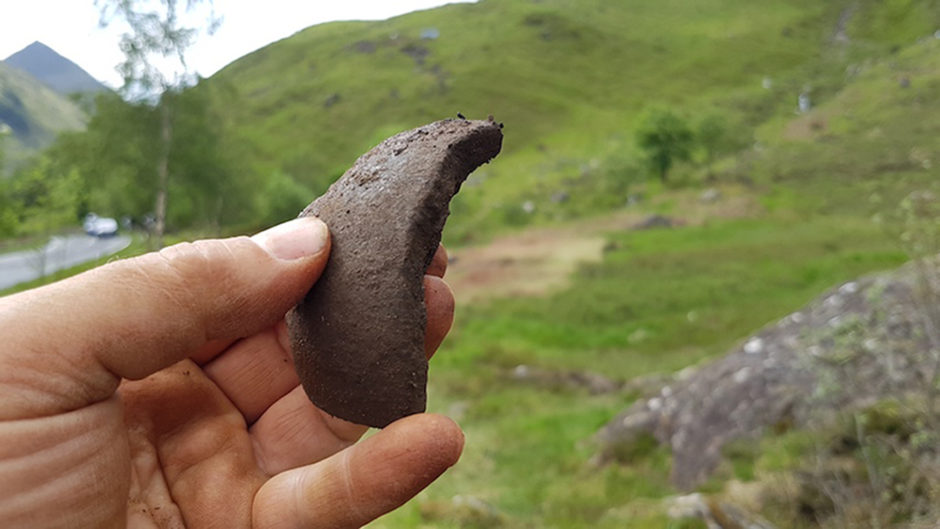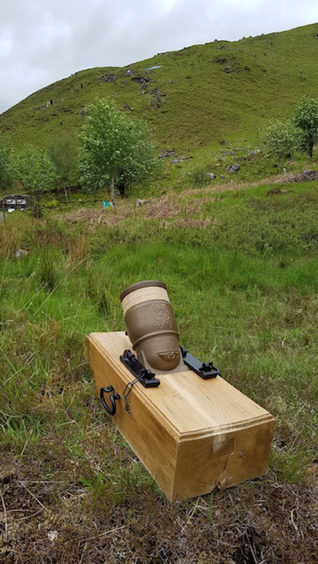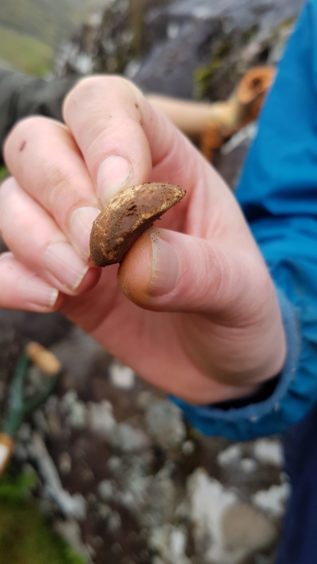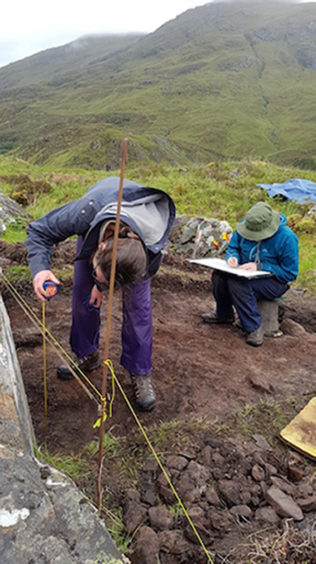A commemoration of a “forgotten” Highland battle, which was part of the Jacobite rebellion, has unearthed 300-year-old relics.
An untouched 300 year-old musket ball and mortar shell were discovered from the Battle of Glenshiel – only days before a ceremony involving clan chiefs, historian Neil Oliver and government minister Fiona Hyslop on Saturday.
Today marks the 300th anniversary of the Battle of Glenshiel where a force of more than 1,000 Jacobites, including troops sent from Spain, attempted to restore “the Old Pretender” James Francis Edward Stuart to the throne of Britain.
The anniversary was marked by a gathering of clans on the site, on Saturday, and while the 1719 rebellion is often overlooked compared to the risings of 1714 and 1745, the defeat had a lasting impact on both the Highlands and the Jacobite cause.
A team of archaeologists working at the site uprising uncovered the first historic remains of the decisive conflict which ended Stuart’s ambitions to take the throne.
The team, led by the National Trust for Scotland, has uncovered several large fragments of a mortar shell that had been fired at Lord George Murray and the Jacobite right wing on the knoll south of the River Shiel.
A musket ball fired by government forces at the Jacobites was also found.
The battle was the first time that the device had been used on British soil, making it an exciting find for the team.
The mortar shells also confirm the interpretation made by the National Trust of a smaller fragment found on the north side of the river last year.
“This is the first positive piece of evidence that we have found from the battle,” said the trust’s head of archaeology, Derek Alexander.
“The rising fizzled out, but it led to the arrival General Wade and his building of the road systems and garrisons in locations across the Highlands. It fixed the government’s minds on the clans and the Jacobites.
“Its failure also meant that there was little appetite for another uprising until Bonnie Prince Charlie and the ’45. It effectively put paid to Jacobite ambitions for 30 years, which is a long time.”




